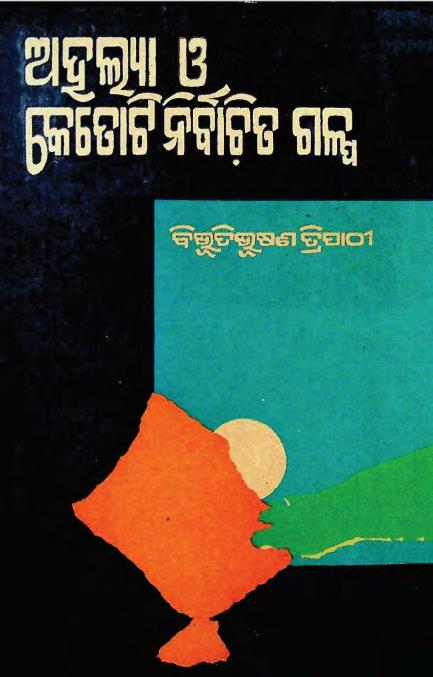In the realm of Odia literature, Bibhuti Bhusan Tripathy stands as a luminary, weaving narratives that not only entertain but also resonate with cultural and moral undertones. One of his notable stories, Ahalya o Ketoti encapsulates the richness of Odia folklore through a captivating tale of love, sacrifice, and redemption.
Set against the beautiful backdrop of rural Odisha, Ahalya o Ketoti follows the lives of Ahalya, a beautiful and virtuous woman, and her beloved Ketoti, a simple yet hardworking man. Their love story blossoms in a quaint village, where traditions, rituals, and the close-knit community shape the characters’ lives. Tripathy paints a vivid picture of their surroundings, bringing alive the lush green fields, the vibrant festivals, and the subtle rhythms of village life—elements that are quintessential to the Odia identity.
Ahalya is portrayed as a character of immense strength and resilience. Despite her enchanting beauty and loving nature, she faces societal pressure and expectations that challenge her autonomy. Ketoti, on the other hand, is depicted as an embodiment of earnestness. His devotion to Ahalya is unwavering, and he dreams of a future where they can be together, free of societal constraints. This juxtaposition of characters sets the stage for a tale filled with emotional depth and complexity.
As the story unfolds, the village’s ingrained traditions and superstitions come to the forefront. Ahalya’s life takes a drastic turn when whispers of a purported curse shroud her existence. This serves as a critical plot point, leading to a series of events that test the couple’s love and resolve. Tripathy’s narrative cleverly intertwines elements of folklore and morality, reflecting on how societal norms can affect personal destinies.
One of the standout features of Ahalya o Ketoti is Tripathy’s masterful storytelling. His rich language and poetic expressions evoke a strong emotional response, drawing readers into the heart of Ahalya and Ketoti’s struggles. The narrative resonates not just in its storytelling but also in its exploration of deeper themes such as fate, societal expectations, and the intrinsic value of love.
Throughout the tale, the dialogue among characters serves as a vehicle for expressing the villagers’ beliefs and values, adding layers to the story. The interactions between Ahalya and Ketoti illustrate the purity of their love, while also reflecting the strength required to combat the societal challenges they face. The story becomes a commentary on the transformative power of love in overcoming adversity.
As the climax approaches, Ahalya and Ketoti are faced with a choice that will determine their future. Their journey embodies the struggle between individual desires and societal pressures, ultimately leading to a poignant resolution that leaves readers contemplating the balance between tradition and personal freedom.
In conclusion, Bibhuti Bhusan Tripathy’s Ahalya o Ketoti is more than just a tale of romance; it is a profound exploration of human emotions, societal constructs, and the resilience of the human spirit. Through his eloquent storytelling, Tripathy invites readers to reflect on their values and the power of love. This story not only enriches Odia literature but also resonates with universal themes that transcend cultural boundaries.
Books Info
| Books name | Ahalya o Ketoti Nirbachit Galpa/ଅହଲ୍ୟା ଓ କେତୋଟି ନିର୍ବାଚିତ ଗଳ୍ପ |
| Author | Bibhuti Bhusan Tripathy |
| No Of pages | 189 |
| Publisher | Pitambara Mishra |
| Publication | 1994 |
| Printed At | Goswami Press |
| Distributor | NA |

